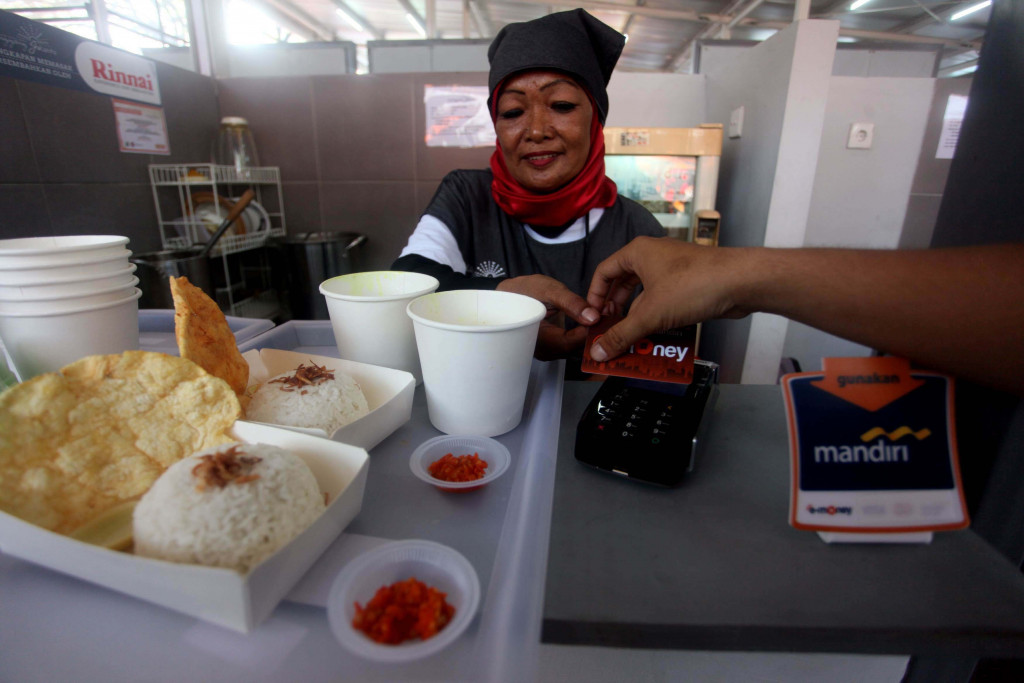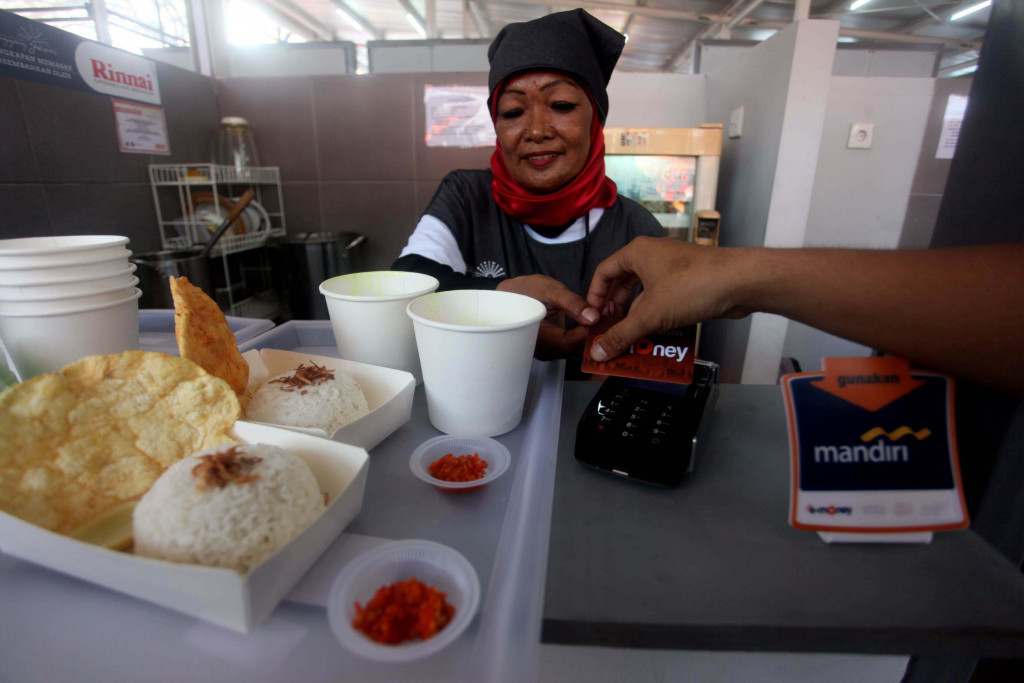Popular Reads
Top Results
Can't find what you're looking for?
View all search resultsPopular Reads
Top Results
Can't find what you're looking for?
View all search resultsThis eastern Indonesia city books highest growth in e-money transactions
The transaction volume for e-money, which ranges from debit cards and credit cards to other forms of e-money such as BCA Flazz and e-wallets Go-Pay and OVO, skyrocketed 204 percent from January to date in Makassar, higher than 89 percent in Yogyakarta and 75 percent in Jakarta, which rank second and third respectively in transaction volume.
Change text size
Gift Premium Articles
to Anyone
A
t night is when downtown Makassar beams with lights, some of which project upward, painting the sky with colors. Along the coast of famous local attraction Losari Beach, where the scenic 99 Domes Mosque stands tall, street food vendors thrive as they serve hungry customers.
Nearby, a mall called Phinisi Point – which got its name from the famous phinisi boats docked along the city’s shore – is occupied by modern food and beverage chains from Japanese shaved ice shop Sumoboo to Italian restaurant Portico.
The modern and burgeoning economy in Makassar is largely driven by the services sector and by trade, staying true to its historic roots of being a hub for the spice trade in the pre-colonial and colonial era, and a collecting point for all produce in eastern Indonesia.
The difference now, however, is that a lot of transactions today are done electronically. From street shops to malls, toll roads to taxis, electronic payments in Makassar are gaining momentum, making it the city with the fastest growth this year in electronic money transaction volume, according to Bank Indonesia (BI) data obtained by The Jakarta Post.
The transaction volume for e-money, which ranges from debit cards and credit cards to other forms of e-money such as BCA Flazz and e-wallets Go-Pay and OVO, skyrocketed 204 percent from January to date in Makassar, higher than 89 percent in Yogyakarta and 75 percent in Jakarta, which rank second and third respectively in transaction volume.
At 81-year-old local grocery store Baji Pamai, three electronic data capture (EDC) machines that handle debit and credit card transactions sit by every cashier stand to serve customers as they check out.
“Alhamdulillah (thanks be to God), this shop that my grandfather inherited can compete with minimarket and supermarket chains that have besieged Makassar,” said owner Ivan Surianto Tranku. “More customers shop with electronic money now, compared with cash. It’s much more practical for them.”


















